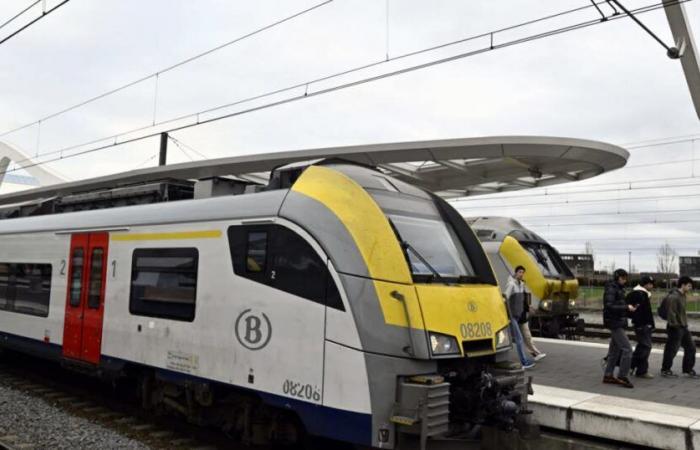Will a controller reignite the Belgian linguistic dispute? The scene, recounted by the controller himself on his Facebook profile, took place on October 7 at rush hour on a train linking Mechelen, in Flanders, to Brussels, a short distance of around 25 km.
In Vilvoorde, while Ilyass Alba greets travelers as they enter a car with a loud (and bilingual) “goeiemorgen/bonjour”, this French speaker is corrected by one of them. “We’re not in Brussels yet, you just have to use Dutch!” », tells him this Dutch speaker who will then file a complaint.
A political twist
As revealed on Wednesday by two media outlets, the filing of the complaint was confirmed this Thursday by the body in question, the Permanent Linguistic Control Commission (CPCL), responsible for monitoring the use of languages in the administration.
In a Belgium divided between Wallons, in the French-speaking south, and Flemings, in the Dutch-speaking north – and where Brussels is the only bilingual region – the incident took a political turn and burst into the debates Thursday afternoon in the Chamber .
Questioned by two Flemish deputies, the Minister of Mobility – and Deputy Prime Minister -, the French-speaking ecologist Georges Gilkinet, defended the controller and called for “dusting off legislation from the last century”. “Train attendants do their best to be at the service of travelers, whether they are daily users or tourists, Flemish in Wallonia, French-speaking in Flanders or foreigners. Using several languages to say hello does not shock me,” said the minister, who has authority over SNCB, the public operator of Belgian railways.
Government and irony of the minister
He pointed out that in a small country like Belgium, regional borders were constantly crossed by trains. The rule on the use of French and Dutch on Belgian trains is complex. In theory, controllers – called attendants in Belgium – must only use both languages in the territory of Brussels and in the few so-called “facilities” municipalities, where the administration is also bilingual.
Elsewhere, they must always express themselves in the language of the region where they are. On the Flemish side, the president of the Christian Democratic Party (CD&V) Sammy Mahdi stepped up to the plate. “As a public authority, we cannot throw our language legislation overboard like that. We need respect for Dutch,” he said.
This earned irony from the minister for this party leader engaged for six months in difficult negotiations to form the future government. “I am surprised that some consider that this is the priority of the day when they also have a government to form,” said Georges Gilkinet. You are running behind your nationalist colleagues! »
A notice from the CPCL before 180 days
For its part, SNCB considered that “it is the interest of the traveler which must take precedence”. “We need a little more flexibility in the application of the regulations,” said one of the company’s spokespersons. “Saying hello in several languages is just nice, we can only thank our guides for that. »
The CPCL, receiving the complaint, will “ask the SNCB for additional information on its application of the rules”, declared one of the commission’s lawyers. It has 180 days to issue an opinion, which is non-binding.
Local
Belgium






